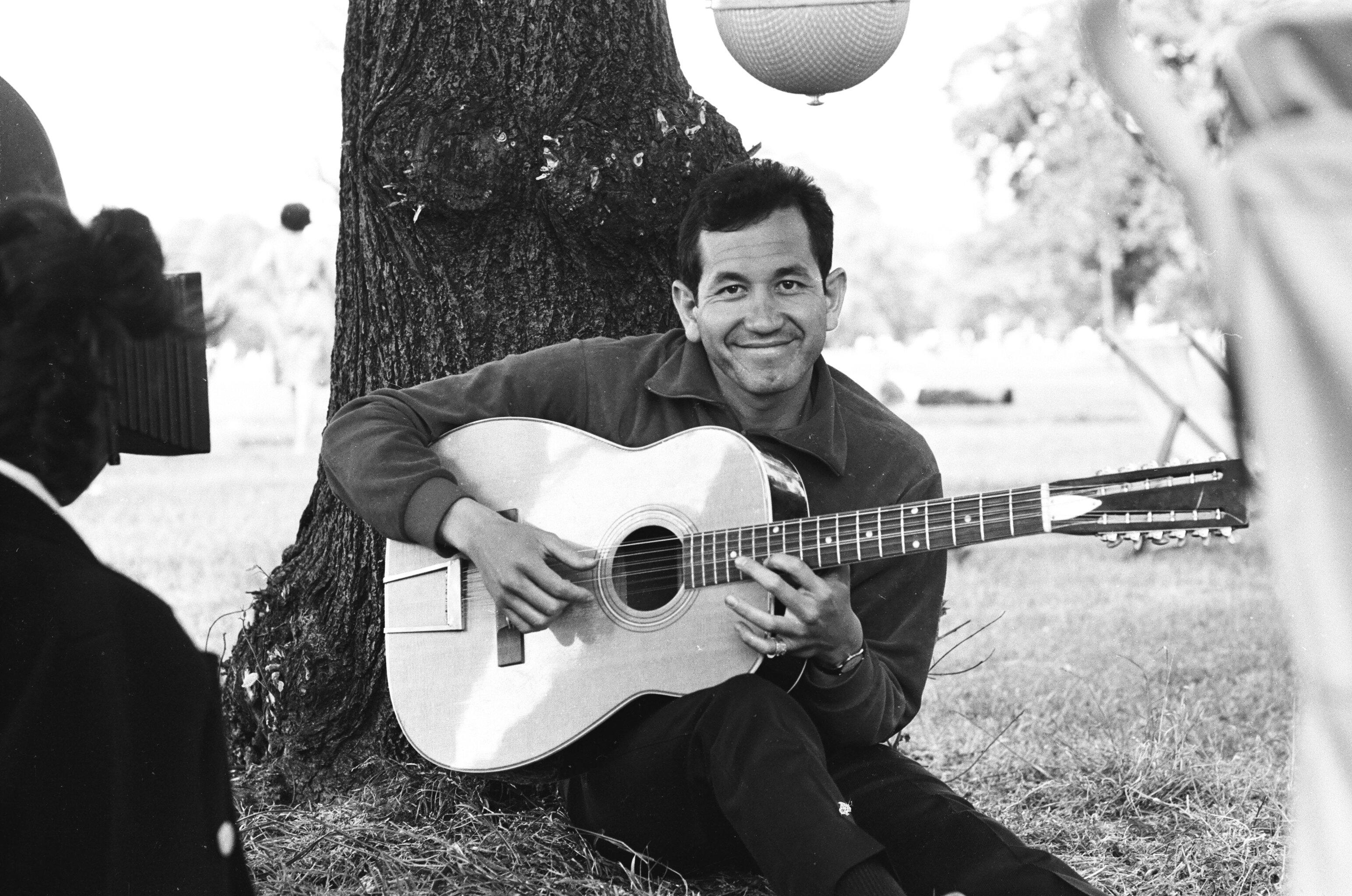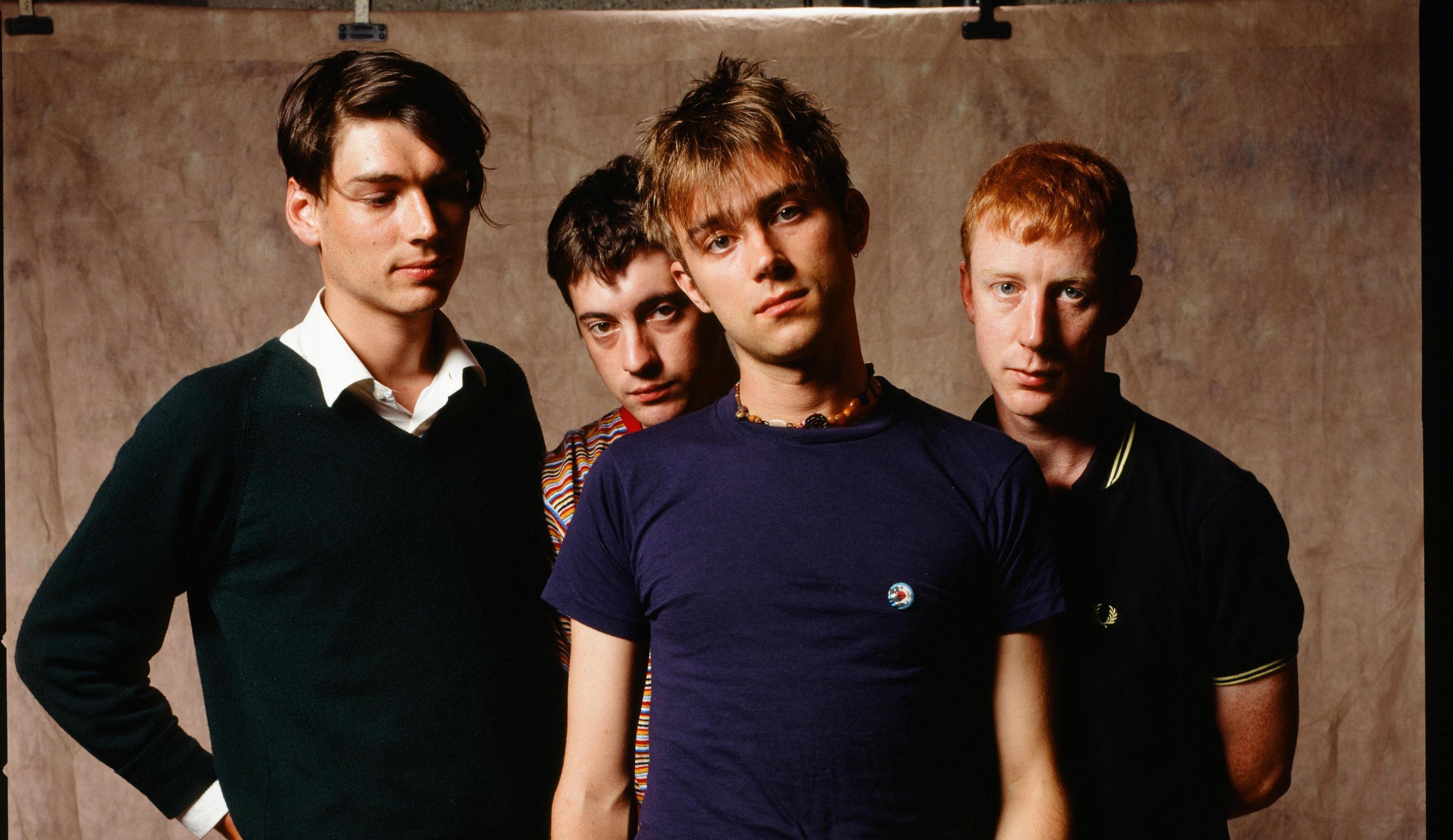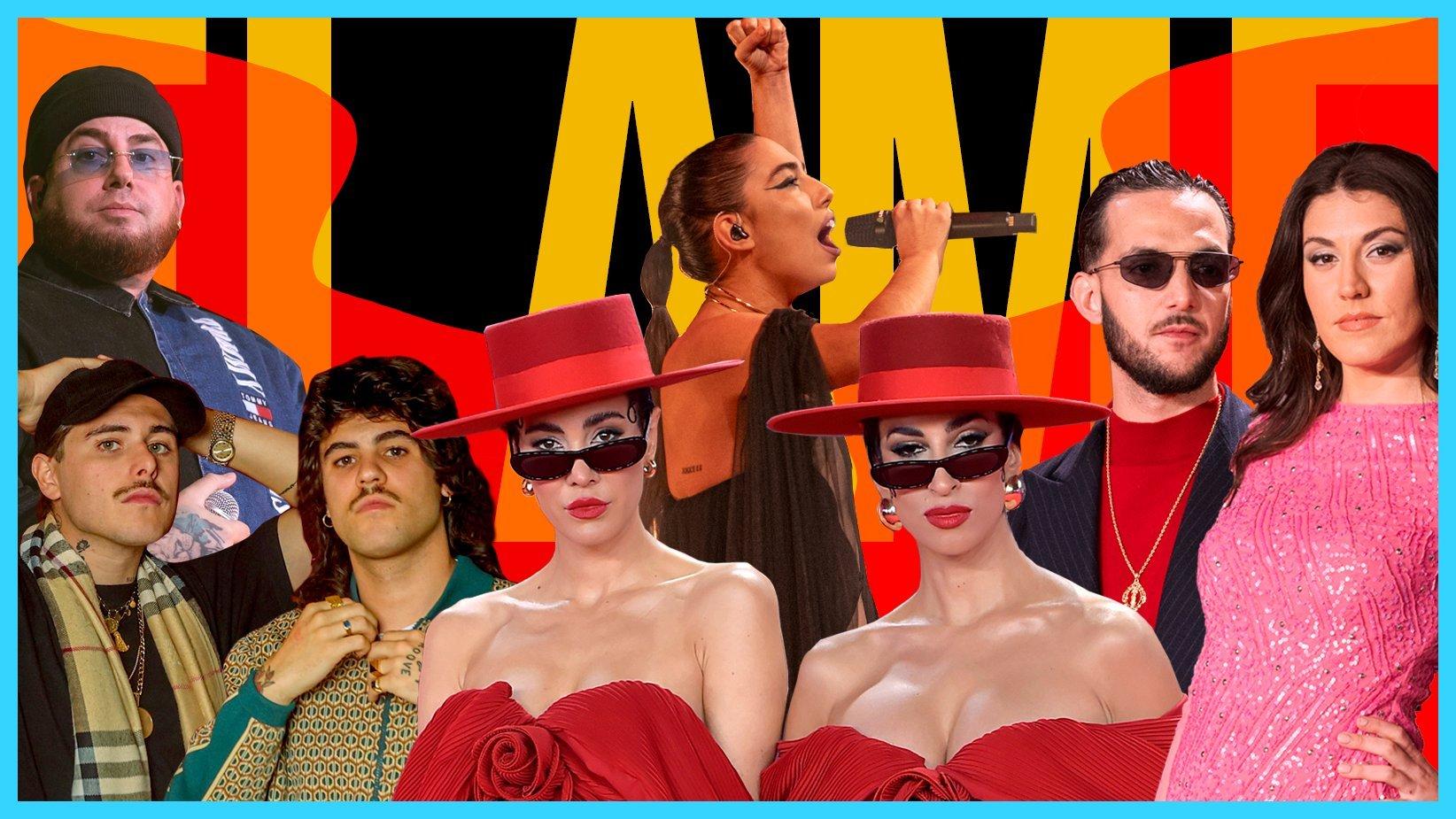Photo: Stanley Bielecki/ASP/Getty Images

Trini Lopez in London in 1965
news
Trini Lopez, Who Revitalized American & Mexican Folk Classics, Has Died From COVID-19 At 83
The GRAMMY-nominated singer/guitarist's biggest global hits were lively covers of folk trio Peter, Paul and Mary's "If I Had a Hammer" and "Lemon Tree"
GRAMMY-nominated singer, guitarist and actor Trini Lopez, whose lively blend of American and Mexican folk songs with rockabilly flair earned him worldwide fame in the '60s, has died at 83. The Mexican-American artist died from COVID-19 at a hospital in Rancho Mirage, Calif. yesterday, Aug. 11.
Beginning with his 1963 debut studio album, Trini Lopez At PJ's, Lopez found success bringing new life—and a raucous, danceable beat and vocal delivery—to other artists' songs, including folk trio Peter, Paul and Mary's hits "If I Had a Hammer" and "Lemon Tree." Both songs would be his biggest, with his versions out-charting theirs both on the Billboard Hot 100 and international charts.
Back at the 6th GRAMMY Awards in 1964, following his epic breakout year, Lopez was nominated for Best New Artist.
If I Had A Hammer: From Aretha Franklin To Public Enemy, Here's How Artists Have Amplified Social Justice Movements Through Music
His rocked-up rendition of "I Had a Hammer," released in 1963 on his live debut album, hit No. 3 on the Hot 100 and No. 1 in 36 countries. The song was originally written by political activist/folk icon Pete Seeger and Lee Hays and recorded as a protest song by their band The Weavers in 1950, reemerging as a GRAMMY-winning No. 10 hit from Peter, Paul and Mary in 1962, the year prior to Lopez's breakout success with the classic song.
Popular '60s West Hollywood star-studded venue P.J.'s, where the Dallas-born singer recorded his first two albums (which also put the club on the map outside of Los Angeles), was where he got his big break, from none other than Frank Sinatra. After catching a few of his shows, the Rat Pack leader signed him to his Reprise label.
"I remember reading in the trades that Frank Sinatra frequented P.J.’s a lot so I moved over there so I could meet him," Lopez said. "I was hired for three weeks and I stayed a year and a half. I played four or five shows every single night and I never repeated a song. I just kept waiting to meet Frank Sinatra, and within a month he came with an entourage and to my surprise he offered me an eight-year record contract on his label. I put P.J.'s on the map with my live albums since they were recorded for Sinatra's record company."
Read: Sin-atra City: The story of Frank Sinatra and Las Vegas
A self-proclaimed "proud" Mexican-American born to immigrant parents in Dallas in 1937, Lopez also performed and recorded many songs in Spanish at a time when artists, including himself, were asked by labels to hide or Whitewash their Latin identity. Trini Lopez At PJ's included a rendition of traditional Mexican folk song "Cielito Lindo" and in 1964, he released The Latin Album, filled with of Spanish language classics. His father, Trinidad Lopez II, was a ranchera singer who made his living as manual laborer.
As The Guardian notes, "in the mid-'60s he was releasing as many as five albums a year, though that slowed in the late '70s. While he continued performing, he released very little music until 2000, when he began recording again and released a further six albums." His final album, released in 2011 and titled Into the Future, was a nod to Sinatra, featuring songs from his catalog.
Save Our Venues: Capturing Los Angeles' COVID-Closed Venues
At the peak of his musical fame in the '60s and '70s, he also found moderate success in film and TV, with roles in films The Dirty Dozen (1967) and Antonio (1973) and a variety show special on NBC in 1969, "The Trini Lopez Show."
A talented guitar player—he started playing at age 11—Gibson Guitars had him design two instruments in 1964, which remain highly sought after to this day. Dave Grohl and Noel Gallagher are both fans of the vintage models. Grohl paid tribute to Lopez on Twitter today, underscoring that he's used his on every Foo Fighters album ever recorded.
His electric live performances and hit records made him an in-demand artist in the Las Vegas circuit, as well as around the globe, including one jaunt he found most memorable—stealing the show as the Beatles' opener in Paris in 1964.
"I used to steal the show from them every night!" he said in a 2014 interview. "The French newspapers would say, 'Bravo, Trini Lopez! Who are the Beatles?'"

Photo: Courtesy of Brann Dailor
video
Where Do You Keep Your GRAMMY?: Mastodon’s Brann Dailor Shares The Story Of Their Best Metal Performance Track, “Sultan’s Curse”
Mastodon drummer and singer Brann Dailor reveals the metaphor behind the track that snagged him his first golden gramophone, “Sultan’s Curse,” and how winning a GRAMMY was the “American Dream” of his career.
Mastodon's drummer and singer Brann Dailor assures you he did not purchase his shiny golden gramophone at his local shopping mall.
“I won that! I’m telling you. It’s a major award,” he says in the latest episode of Where Do You Keep Your GRAMMY?
The metal musician won his first GRAMMY award for Best Metal Performance for Mastodon's “Sultan’s Curse” at the 2018 GRAMMYs.
“‘Sultan’s Curse’ was the jumping-off point for the whole theme of the album,” he explains. “The protagonist is walking alone in the desert, and the elements have been cursed by a Sultan.”
It’s a metaphor for illness — during the creation of the album, the band’s guitarist Bill Kelliher’s mother had been diagnosed with a brain tumor and bassist Troy Sanders’s wife was battling breast cancer.
For the band, the GRAMMY award represented their version of the American Dream and culmination of their career work. Even if Mastodon didn’t win the award, Dailor was happy to be in the room: “We felt like we weren't supposed to be there in the first place! But it's an incredible moment when they actually read your name."
Press play on the video above to learn the complete story behind Brann Dailor's award for Best Metal Performance, and check back to GRAMMY.com for more new episodes of Where Do You Keep Your GRAMMY?

Photo: Koh Hasebe/Shinko Music/Getty Images
list
7 Ways Blur's 'Parklife' Served As The Genesis Of Britpop
On the heels of their Coachella return, Blur celebrates the 30th anniversary of their opus, 'Parklife,' on April 25. Take a look at how the album helped bring Britpop to the mainstream.
In April 1993, journalist Stuart Maconie coined the term Britpop for a Select magazine article celebrating the UK's fight back against the dominance of American rock. Remarkably, London four-piece Blur weren't even mentioned in the story. And yet, frontman Damon Albarn, guitarist Graham Coxon, bassist Alex James, and drummer Dave Rowntree would provide the catalyst for the scene's mainstream breakthrough.
Just a year later, Blur released what many consider to be Britpop's defining statement. Parklife served as a colorful, vibrant, and incredibly infectious love letter to all things Anglocentric, drawing upon the nation's great cultural heritage while also foreshadowing what was to come. And it instantly struck a chord with homegrown audiences desperate for guitar music that wasn't drowning in abject misery, and better reflected their day-to-day lives.
Remarkably, Albarn had predicted Parklife's success four years earlier. As he declared to music writer David Cavanagh in 1990, "When our third album comes out, our place as the quintessential English band of the '90s will be assured. That is a simple statement of fact."
Three decades after its game-changing release, here's a look at how Parklife forever changed both Blur's career trajectory and the history of British rock.
It Kickstarted Britpop's Greatest Rivalry
In one of those great rock coincidences, Blur's third LP hit the shelves just 24 hours after "Supersonic" gave a then-relative unknown Manchester outfit named Oasis their first ever UK Top 40 single. And the two bands would remain intertwined (perhaps begrudgingly so) from then on, culminating in the most high-profile chart battle in British music history.
You could argue that Oasis' Noel Gallagher threw the first stone, describing Parklife as "Southern England personified" in a manner that suggested it wasn't exactly complimentary. And according to his manager Alan McGee, Definitely Maybe cut "Digsy's Dinner" was written as a deliberate "piss-take of Blur."
An increasingly bitter war of words then broke out in the summer of 1995 as the "Country House" versus "Roll With It" war swept the nation. Blur emerged victorious, although Oasis had the last laugh when (What's The Story) Morning Glory spent 10 weeks atop the UK album chart.
It Brought Storytelling Back To Indie Pop
Heavily inspired by Martin Amis novel London Fields, Parklife was inhabited by a cast of intriguing fictional characters, essentially doubling up as a series of short stories. "Tracy Jacks," for example, is about a golf-obsessed civil servant who ends up getting arrested for public indecency before bulldozing his own house.
"Magic America" is the tale of Bill Barret, a Brit who commits to a life of excess during a Stateside holiday ("Took a cab to the shopping malls/ Bought and ate until he could do neither anymore"), while "Clover Over Dover" explores the mindset of a manipulative boyfriend threatening to jumping off the titular white cliffs.
Over the following 18 months, everything from Pulp's "Common People" and Space's "Neighbourhood" to Supergrass' "Caught by the Fuzz" and The Boo Radleys' "It's Lulu" were combining classic British guitar pop with witty Mike Leigh-esque vignettes of modern life.
It Originated The Big Indie Ballad
Dramatic ballads aren't necessarily the first thing that come to mind with Parklife, a record famed for its jaunty, "knees-up Mother Brown" ditties. But it boasts two examples: "To The End," an alternate Bond theme featuring a burst of Gallic flair from Stereolab's Laetitia Sadler, and the swoonsome "This Is A Low." Turns out the "mystical lager-eater" the record was designed to embody could also get a little vulnerable from time to time.
This appeared to give all of their laddish peers some pause for thought. Oasis, the most fervent advocates of the "cigarettes and alcohol" lifestyle, later scored their biggest hit with acoustic ballad "Wonderwall." And bands including Cast ("Walkaway"), Shed Seven ("Chasing Rainbows") and Menswear ("Being Brave") all enjoyed UK hits revealing their softer sides. No doubt Coldplay, Travis, and every other sensitive post-Britpop outfit that emerged in the late 1990s were taking notes, too.
It Paid Respect To The Greats
The Britpop scene was renowned for its slavish devotion to the first time British guitar bands ruled the airwaves, the Swinging Sixties. Oasis freely admitted they modeled themselves on the Beatles, while the likes of Ocean Colour Scene, Kula Shaker and The Paul Weller all released albums that sounded like they'd been discovered in a vintage record shop.
And while Blur would later distance themselves from the past with a sense of invention (which Albarn would also parlay into his various side projects, including the virtual band Gorillaz), they were more than happy to get all nostalgic on Parklife. See "Far Out," their only track to feature James on lead vocal, which resembled the trippy psychedelia of Pink Floyd in their Syd Barrett era, and the Sgt. Pepper-esque brassy instrumental "The Debt Collector," while there are also echoes of the Walker Brothers, The Kinks, and Small Faces. Suddenly, retro was the new cool.
It Turned Blur Into Britain's Biggest Guitar Band
The UK Top 10 success of 1991's "There's No Other Way" proved to be something of a false start for Blur, with the band soon falling by the wayside like every other baggy pop outfit that emerged at the turn of the decade. "Popscene," the 1992 single intended to revolutionize both their career and British guitar music in general, stalled at No. 32, while 1993 sophomore Modern Life is Rubbish sold just 40,000 copies.
But Parklife single-handedly turned Blur into Britain's biggest guitar band, reaching No. 1 in their homeland, spending 82 weeks in the Top 40, and eventually becoming a million-seller. It went on to pick up four BRITs, a Mercury Prize nomination, and has been recognized as an all-time great by Spin, Pitchfork, and Rolling Stone. Further proof of its glowing reputation came in 2009 when Royal Mail selected it as one of 10 albums worthy of commemorating on a postage stamp.
It Spawned A String Of Classic Singles
Parklife's campaign was kicked off in March 1994 with "Girls and Boys," a glorious dissection of British vacationers — which, surprisingly in the days when genre-hopping was frowned upon — evoked the '80s synth-pop of Duran Duran and Pet Shop Boys. Rowntree was even replaced by a drum machine, not that he particularly minded, luckily.
This indie floorfiller was followed up by the hugely underrated "To The End" and then the much-quoted title track. Everything about "Parklife" the song is larger than life: the Cockney geezer narration from Quadrophenia's Phil Daniels, the festival-friendly sing-along chorus, and the brightly colored video in which James — perhaps tipping his hat to Queen's "I Want to Break Free" -– donned soap opera drag. But fourth release "End of a Century," a melancholic tale of domestic drudgery complete with mournful trombone solo, once again proved there was a depth beyond their cheeky chappy personas.
It Made Brits Proud To Be British Again
Unable to connect with the oppressive angst and flannel shirts of the grunge movement that had plagued their first major North American tour in 1992, Blur first started to embrace their inherent Englishness on the following year's Modern Life is Rubbish. Unfortunately, this throwback to the original British Invasion was met with a resounding shrug of the shoulders on both sides of the Atlantic.
Undeterred, however, the band doubled down on all things Anglocentric on its follow-up, from its original title of London, to its greyhound racing cover art, to its celebrations of bank holidays, Club 18-30 holidays, and shipping forecasts. This time around, they managed to capture the zeitgeist (at home, at least), as the rise of New Labour and the forthcoming hosting of Euro '96 made everyone proud to be British again. Within 12 months, the UK charts were littered with homegrown guitar bands selling the idea of the English dream — and it all started with Parklife.

Photos: Atilano Garcia/SOPA Images/LightRocket via Getty Images; Ricardo Rubio/Europa Press via Getty Images; Juan Naharro Gimenez/Getty Images; PABLO GALLARDO/REDFERNS; Aldara Zarraoa/WireImage; Mario Wurzburger/WireImage
list
6 Artists Reimagining Flamenco For A New Generation: María José Llergo, C. Tangana, Mëstiza & More
Contemporary artists like La Plazuela, Queralt Lahoz, and Maka are transforming flamenco by blending traditional roots with innovative sounds and global influences.
Flamenco is undergoing a sweeping transformation. Propelled not by a single artist, but by a wave of creative talents, a new generation of artists are injecting fresh life into this storied genre.
Six years after Rosalía's 2018 release, El Mal Querer, catalyzed a wider renaissance in the flamenco world with an approach inspired by the legendary Romani flamenco singer Camarón de la Isla a new wave of artists are rushing in to redefine the landmark Latin sound.
A new generation of Spanish musicians draw deep inspiration from flamenco's rich traditions while redefining its contemporary form. Rooted in the flamenco traditions cherished by their ancestors, today's artists are innovating this heritage with a new set of sensibilities. Flamenco itself, with its diverse array of styles or palos, offers a unique medium of expression, characterized by distinctive rhythmic patterns, melody and emotional intensity.
Discover the vibrant future of flamenco through the innovative works of trailblazers like La Plazuela, Queralt Lahoz, Mëstiza, C. Tangana, Maka, and María José Llergo. From Maka's trap-fueled infusions of reggaeton to Lahoz's innovations on traditional guitar-playing techniques, each of these artists, with their unique contemporary take on traditional styles, is reimagining flamenco and captivating audiences around the world.
La Plazuela
La Plazuela duo Manuel Hidalgo and Luis Abril are both from Albaicín in the Andalusian city of Granada. It's a district infused with rich cultural history, where steep, winding streets are bursting with art and the sounds of flamenco.
La Plazuela soaks the rhythms of flamenco in a distinctively sunny sound, forgoing the woeful connotations of the genre to explore new, optimistic possibilities. On their new song "Alegrías De La Ragua" the pair teamed up with flamenco singer David de Jacoba and electro producer Texture. The track is an ode to the sugar cane fields of Andalusia, highlighting the region’s agricultural importance and intrinsic relationship with the land — distinctly Granada both in sound and story.
Queralt Lahoz
Born in Barcelona to an Anducian family, Queralt Lahoz was raised on the sounds of flamenco at home where her Granada-born grandmother immersed her in the musical traditions of southern Spain.
While her soulful, urban style deeply resonates with flamenco, Lahoz has stressed that she is not a purist of the genre and enjoys experimenting with different styles. Stripped back, brutally honest and direct, tracks like "De La Cueva a Los Olivos" is a multifaceted track that opens with rasgueado (percussive guitar technique integral to flamenco) that evolves into a brassy, jazzy chorus, and even includes a rap verse. She cites late flamenco great La Niña de los Peines alongside Wu-Tang Clan among her influences — a testament to her love of musical diversity.
Mëstiza
Mëstiza envisioned flamenco for the nightclub: The DJ duo Pitty Bernad and Belah were already hot names in the Spanish club scene before they combined forces.
Pitty hails from the southern region Castilla-La Mancha, and Belah from neighboring Andalucia. The two met in the Madrid DJ scene and shared a love for electronic music steeped in folkloric tradition. They are behind legendary Spanish club night Sacro, an immersive audiovisual experience rooted in ritualistic Spanish folklore. The duo has plans to bring their unique Sacro sound across the globe soon with to-be-announced performances planned for Europe, Asia, and the United States.
C. Tangana
C. Tangana (full name Antón Álvarez) co-wrote eight songs on former flame Rosalía's El Mal Querer and demonstrates his dexterity and vision in the sounds of flamenco on his 2020 release, El Madrileño. The album explores regional sounds from across Spain and Latin America, employing the finest artists from these genres as collaborators.
The album's first single, "Tú Me Dejaste De Querer" features flamenco stars Niño de Elche and La Húngara singing in the chorus between Álvarez’s rapped verses. Alvaréz’s tour of the album was based on a typical Spanish sobremesa (post-dinner conversation), with bottles of wine placed on a long table set with tapas, elbow-to-elbow with fellow musicians who clap palmas flamencas, play guitar, and provide backing vocals. El Madrileño earned three Latin GRAMMYs in 2021 and The Tiny Desk performance of the album is among the series’ most-watched concerts.
Maka
Granada-born Maka has been a pioneer in viewing flamenco through an urban lens. A versatile artist, he is both a skilled rapper and prolific singer/songwriter. In his 2014 release, Pna, Maka combined flamenco singing (canté) over hip-hop beats ("La Dirty Flamenca") and reversed the formula to rap over flamenco rhythms ("Vividor").
Maka returned to flex his mastery in flamenco in his 2021 album, Detrás de Esta Pinta Hay un Flamenco, which pays homage to the melodic pop-flamenco bands of the 1980s and 1990s with a throwback feel. His latest 2024 single "Amor Ciego'' combines a reggaeton beat with flamenco vocal embellishments, calling back to many of his early reggaeton and trap-fueled releases.
María José Llergo
María José Llergo released her debut album Ultrabelleza last October to critical acclaim, sparking an upcoming U.S. tour. As a trained flamenco vocalist, she graduated from the prestigious Escuela Superior de Música de Cataluña (Rosalía is a fellow alum.)
Llergo grew up in the small town of Pozoblanco, on the outskirts of the Andalusian city, Cordoba. Her grandfather, a vegetable farmer, taught Llergo flamenco from a young age, singing with her as he worked the land.
Llergo’s music combines flamenco with the sounds of nature, reimagined synthetically through electronic experimentation that results in lush, immersive soundscapes. "I turn like the moon in the sky... If I stop moving, I’ll die", she sings in Spanish on the track "Rueda, Rueda," contemplating the rhythm of life. Her lyrics are deeply poetic and metaphorical, tying place to emotion, and nature to feeling.

Photo: Kevin Mazur/Getty Images for Live Nation
list
10 Record Store Day 2024 Releases We're Excited About: The Beatles, Notorious B.I.G. & More
In honor of Record Store Day 2024, which falls on April 20, learn about 10 limited, exclusive drops to watch out for when browsing your local participating record store.
From vinyl records by the 1975 and U2, to album reissues and previously unreleased music, record stores around the world are stocking limited and exclusive releases for Record Store Day 2024.
The first Record Store Day kicked off in 2008 and every year since, the event supporting independently owned record stores has grown exponentially. On Record Store Day 2024, which falls on April 20, there will be more than 300 special releases available from artists as diverse as the Beatles and Buena Vista Social Club.
In honor of Record Store Day 2024 on April 20, here are 10 limited and exclusive drops to watch out for when browsing your local participating record store.
David Bowie — Waiting in the Sky (Before The Starman Came To Earth
British glam rocker David Bowie was a starman and an icon. Throughout his career, he won five GRAMMY Awards and was honored with the Lifetime Achievement Award in 2006.
On RSD 2024, Bowie's estate is dialing it back to his Ziggy Stardust days to make Waiting in the Sky (Before The Starman Came To Earth) available for the first time. The record features recordings of Bowie's sessions at Trident Studios in 1971, and many songs from those sessions would be polished for his 1972 album The Rise and Fall of Ziggy Stardust and the Spiders from Mars.
The tracklisting for Waiting in the Sky differs from Ziggy Stardust and features four songs that didn’t make the final album.
Talking Heads — Live at WCOZ 77
New York City-based outfit Talking Heads defined the sound of new wave in the late '70s and into the next decade. For their massive influence, the group received two GRAMMY nominations and was later honored with the Lifetime Achievement Award in 2021.
While promoting their debut album Talking Heads: 77, the quartet recorded a live performance for the New Albany, Pennsylvania radio station WCOZ in 1977. The Live at WCOZ 77 LP will include 14 songs from that performance at Northern Studios, including seven that will be released for the first time. Among the previously unheard cuts are "Love Goes To A Building On Fire" and "Uh-Oh, Love Comes To Town." During that session, Talking Heads also performed songs like "Psycho Killer" and "Pulled Up."
The Doors — Live at Konserthuset, Stockholm, September 20, 1968
The Doors were at the forefront of the psychedelic rock movement of the 1960s and early '70s. One of Jim Morrison's most epic performances with the band will be available on vinyl for the first time.
Live at Konserthuset, Stockholm, September 20, 1968 includes recordings from a radio broadcast that was never commercially released. The 3-LP release includes performances of songs from the Doors’ first three albums, including 1967’s self-titled and Strange Days. In addition to performing their classics like "Light My Fire" and "You're Lost Little Girl," the Doors and Morrison also covered "Mack the Knife" and Barret Strong's "Money (That's What I Want)" live during this session.
Dwight Yoakam — The Beginning And Then Some: The Albums of the '80s
Over the course of his 40-year career, country music icon Dwight Yoakam has received 18 GRAMMY nominations and won two golden gramophones for Best Male Country Vocal Performance in 1994 and Best Country Collaboration with Vocals in 2000.
On Record Store Day 2024, Yoakam will celebrate the first chapter of his legacy with a new box set: The Beginning And Then Some: The Albums of the '80s. His debut album Guitars, Cadillacs, Etc., Etc. and 1987’s Hillbilly Deluxe will be included in the collection alongside exclusive disc full of rarities and demos. The 4-LP set includes his classics like "Honky Tonk Man," "Little Ways," and "Streets of Bakersfield." The box set will also be available to purchase on CD.
The Beatles — The Beatles Limited Edition RSD3 Turntable
Beatlemania swept across the U.S. following the Beatles’ first appearance on "The Ed Sullivan Show" in February 1964, setting the stage for the British Invasion. With The Beatles Limited Edition RSD3 Turntable, the band will celebrate their iconic run of appearances on Sullivan’s TV program throughout that year.
The box set will include a Beatles-styled turntable and four 3-inch records. Among those records are the hits "I Want To Hold Your Hand," "Till There Was You," "She Loves You," and "I Saw Her Standing There," which the Beatles performed on Sullivan's TV across several appearances.
Among 23 GRAMMY nominations, the Beatles won seven golden gramophones. In 2014, the Recording Academy honored them with the Lifetime Achievement Award.
Olivia Rodrigo and Noah Kahan — From The BBC Radio 1 Live Lounge LP
Olivia Rodrigo and Noah Kahan are two of the biggest pop stars in the world right now — Rodrigo hitting the stage with No Doubt at Coachella and near the end of her global GUTS Tour; Kahan fresh off a Best New Artist nomination at the 2024 GRAMMYs. Now, they're teaming up for the split single From The BBC Radio 1 Live Lounge LP, a release culled from each artist's "BBC Radio 1 Live Lounge" sessions.
The special vinyl release will include Rodrigo's live cover of Kahan's breakout hit "Stick Season." The single also includes Kahan’s cover of Rodrigo’s song "Lacy" from her second album, GUTS. This month, they performed the song live together on Rodrigo’s Guts World Tour stop in Madison Square Garden.
Buena Vista Social Club — Buena Vista Social Club
Influential Cuban group Buena Vista Social Club popularized genres and sounds from their country, including son cubano, bolero, guajira, and danzón. Buena Vista Social Club's landmark self-titled LP won the GRAMMY for Best Tropical Latin Album in 1998.
The following year, a documentary was released that captured two of the band's live performances in New York City and Amsterdam. To celebrate the 25th anniversary of the documentary, the Buena Vista Social Club album will be released on a limited edition gold vinyl with remastered audio and bonus tracks.
Buena Vista Social Club is one of the 10 recordings to be newly inducted into the GRAMMY Hall Of Fame as part of the 2024 inductee class.
Danny Ocean — 54+1
Venezuelan reggaeton star Danny Ocean broke through on a global level in 2016 with his self-produced debut single "Me Rehúso," a heartbreaking track inspired by Ocean fleeing Venezuela due to the country's economic instability and the lover he had left behind.
With "Me Rehúso," Ocean became the first solo Latin artist to surpass one billion streams on Spotify, on the platform with a single song. "Me Rehúso" was included on his 2019 debut album 54+1, which will be released on vinyl for the first time for Record Store Day.
Lee "Scratch" Perry & The Upsetters — Skanking With The Upsetter
Jamaican producer Lee "Scratch" Perry pioneered dub music in the 1960s and '70s. Perry received five GRAMMY nominations in his lifetime, including winning Best Reggae Album in 2003 for Jamaican E.T.
To celebrate the legacy of Perry's earliest dub recordings, a limited edition run of his 2004 album Skanking With The Upsetter will be released on Record Store Day. His joint LP with his house band the Upsetters will be pressed on transparent yellow vinyl. Among the rare dub tracks on the album are "Bucky Skank," "Seven & Three Quarters (Skank)," and "IPA Skank."
Notorious B.I.G. — Ready To Die: The Instrumentals
The Notorious B.I.G. helped define the sound of East Coast rap in the '90s. Though he was tragically murdered in 1997, his legacy continues to live on through his two albums.
During his lifetime, the Notorious B.I.G. dropped his 1994 debut album Ready to Die, which is widely considered to be one of the greatest hip-hop releases of all-time. In honor of the 30th anniversary of the album (originally released in September '94), his estate will release Ready To Die: The Instrumentals. The limited edition vinyl will include select cuts from the LP like his hits "Big Poppa," "One More Chance/Stay With Me," and "Juicy." The album helped him garner his first GRAMMY nomination in 1996 for Best Rap Solo Performance. The Notorious B.I.G. received an additional three nominations after his death in 1998.
10 Smaller Music Festivals Happening In 2024: La Onda, Pitchfork Music Fest, Cruel World & More
